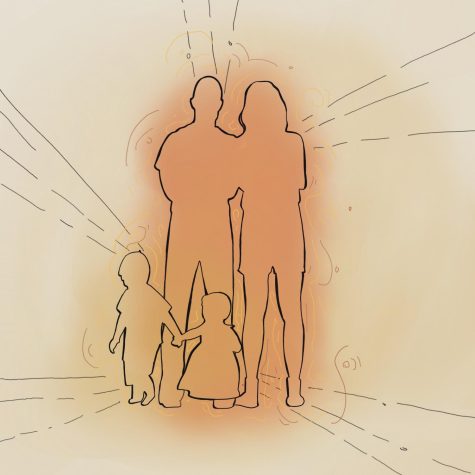Friendships are closer than they appear
February 2, 2017
I know that for many Asian Americans, they are caught in what feels like no-man’s land. Growing up, at first they may not understand that they are not the typical ‘American’ until someone rudely awakens them with questions that undermine their sense of belonging. And this issue of ‘belonging’ poses identity issues for the person’s foreseeable future. Peers see us as different from their quintessential ideas of what it means to be really ‘American’ and don’t see you as one of ‘them.’ Yet when I return to China, and other Asian Americans hop on their respective flights to revisit different ancestral roots, we are often not greeted by the sense of homecoming or welcome that one would imagine.
I know that, despite looking just like all the other residents, I am not truly like them, at least not in the ways that really matter. I don’t know the struggles of studying for college examinations or how they use their native social media apps, and my dreams at night are in English rather than Chinese.
This issue of being foreign in both the country you’re born in and the country your ancestors hail from while seemingly unique to second generation American immigrants is actually representative of a larger issue of what it means to ‘belong’ to any culture. Because despite all claims of wanting diversity and meeting new and different people, all evidence seems to suggest that we’d actually much prefer being around people that are just like us.
When I look at my closest, most trusted friends, in some way or another, we have some commonalities that make it easy to get along. Maybe some of my friends are Asian and we can discuss our common experience, or maybe we both grew up in the suburbs and can talk about how exciting that was. Either way, many friendships, in some way or another, are predicated on the idea of being similar. After all, the highest compliment we can bestow upon a friend is that of a family member like brother or sister.
The implication behind ‘family’ is the necessary shared experience of growing up together, or having been through so much together that they truly know you in a way that only those who have been with you from birth can. Yet the problem is brought up when we assume that superficial appearances or culture necessarily define our experience, or that culture defines who we are as people. Because while it is true that I likely will have an instantaneous and special connection with fellow Asian Americans (by virtue of our shared experience, and that initial ‘you look like me’ feeling), that does not preclude the possibility of connections with people that I don’t know as well.
Like many things, the problem is that we take the easy way out, use our eyes to gauge who we might get along with or rely on a safe clique of old friends rather than exploring other new possibilities for friendship. I assumed that I would be unable to make friends in China because of a language and culture barrier, thereby missing out on the chance for a meaningful connection with someone who would have been able to teach me more about life. But, regardless of who you are or where you come from, there are undoubtedly similar experiences, hobbies or even a sense of humor that can be shared and cherished.
While I am sure it has been said more eloquently than what I am about to write, there will always be something to be gained, so long as we are willing to put in effort. When we look past the superficial, there may be the closest friend we’ll ever make waiting on the other side.







